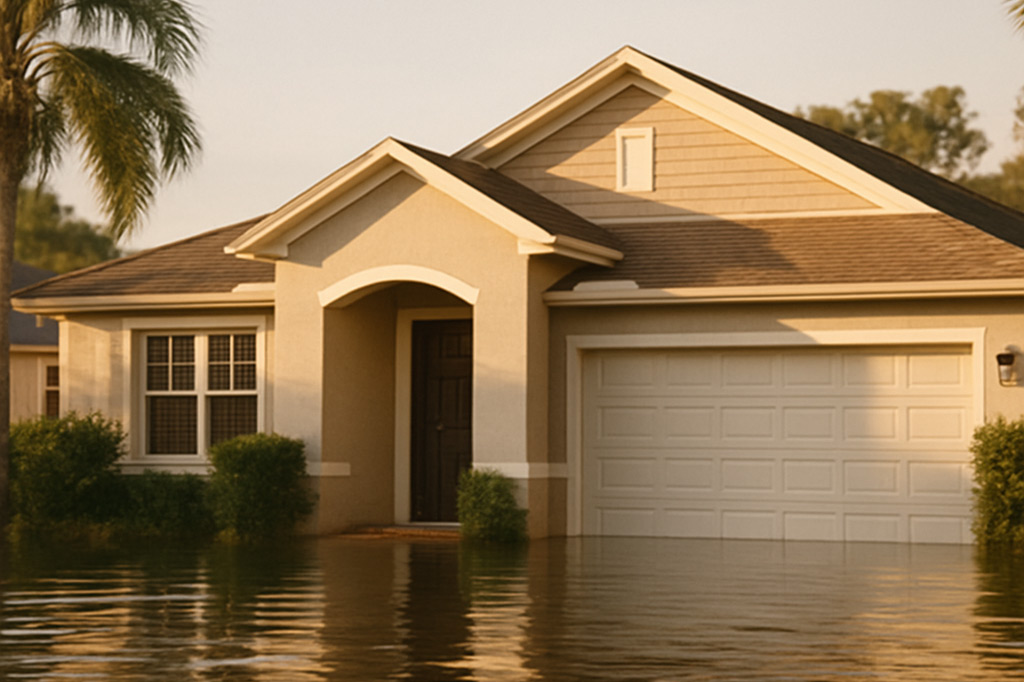
Buying a home in Florida means more than just sunshine and palm trees—it also means dealing with unique environmental risks, especially flooding. Whether you're eyeing a beachside condo in Miami or a family home in inland Orlando, understanding flood zones is critical before closing on a property.
What Are Flood Zones?
Flood zones are geographic areas defined by the Federal Emergency Management Agency (FEMA) based on varying levels of flood risk. These zones determine the likelihood of flooding and influence insurance requirements, building codes, and property values.
Florida has more properties at risk of flooding than any other U.S. state, according to studies modeled on FEMA maps and sea-level projections.
Common FEMA Flood Zone Categories
- Zone A: High-risk areas without detailed base flood elevation data.
- Zone AE: High-risk areas with base flood elevation data provided.
- Zone X: Areas of moderate or minimal flood risk.
- Zone VE: High-risk coastal zones with potential for storm surge.
Why It Matters to Florida Homebuyers
Flood zone designation can drastically affect your closing costs, long-term expenses, and ability to finance a home. For example, properties in Zone AE or VE will almost always require mandatory flood insurance if you're using a federally backed mortgage.
"We advise our clients to request a copy of the FEMA flood map from the seller or listing agent early in the process," says John Smith, an insurance broker based in Orlando. "Too many buyers find out too late that their dream home sits in a high-risk zone."
How to Check a Property's Flood Zone
Before making an offer or finalizing financing, take these steps:
- Use FEMA's online Flood Map Service Center (msc.fema.gov) to search by address.
- Ask your real estate agent for a preliminary flood zone determination report.
- Request an official Elevation Certificate if the property is in Zone AE or VE.
- Consult your insurance provider to get a flood insurance quote before closing.
Flood Insurance Costs in Florida
Flood insurance premiums vary significantly based on location, elevation, and structure type. Coastal areas like Tampa Bay and Jacksonville tend to see higher rates, while homes in Zone X may not require flood insurance at all.
According to data from the National Flood Insurance Program (NFIP), the average annual flood insurance premium in Florida is around $700–$900, though this can climb to several thousand for high-risk coastal properties.
"In Miami-Dade, we see a lot of older homes built below base elevation. These tend to carry hefty premiums unless mitigated," notes Jane Doe, a Miami-based real estate analyst. "That's why flood zone status can be a deal-breaker."
State and Local Regulations
Florida law requires sellers to disclose known facts that materially affect the value of residential property, but there's no specific legal obligation to disclose flood zone status. However, many counties like Broward and Hillsborough include flood zone data in their property appraiser systems.
Tip:
Check the local county appraiser's website or GIS map to verify the flood zone and historical flood claims tied to a parcel.
Mitigation Strategies for Buyers
If the property is in a high-risk flood zone but you still love it, consider these strategies:
- Negotiate seller credits for flood insurance or elevation improvements.
- Install flood vents and barriers to reduce insurance premiums.
- Raise utilities and critical systems above base flood elevation.
- Secure a current Elevation Certificate to explore reclassification options.
Looking to buy in a flood-prone area? Don't go it alone.
Consult with a licensed real estate agent and a qualified insurance professional to fully understand your risk and responsibilities.
Flood zones aren't dealbreakers—but they require informed decision-making. With proper research, expert guidance, and proactive planning, Florida buyers can protect their investments and enjoy peace of mind in their new home.
For more insights like these, subscribe to our weekly newsletter at Florida Times.